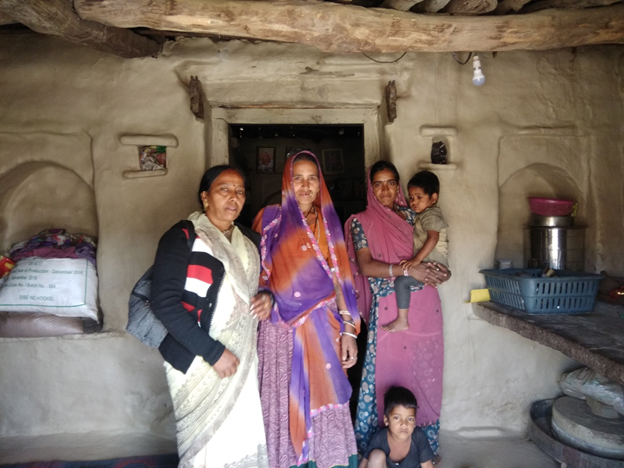Dayan Pratha: Victims of Superstition
Witch-hunting/Dayan pratha is one of the evil customs that still prevail in Indian society. In which a person mostly women is accused of practicing harmful practices is branding as witches by bhoppas and the local community. The victim who is branded as a witch is facing many tortures, beatings, burns, paraded naked throughout the village by wearing a garland of chappals, forced to eat human waste, and even raped. In most cases, women are killed by the crowd. Witch-hunting primarily targets women belongs to the weaker sections of the society and economically backward region. Witch-hunting is very much alive today in the rural parts of India. According to the Indian National Crime Records Bureau, more than 2500 people in India have been tortured and killed by branding witches in between 2000 to 2016, most of them are women. Rajasthan along with other 5 states implemented a law called Rajasthan Prevention of Witch-hunting Act in 2015.
Kesi Chandana, a quiet woman in her 40s who lives in a tiny village in the state of Rajasthan, was accused of witchcraft in 2014. She survived the attack, but it has left her permanently changed. “They didn’t kill me, but they didn’t leave me alive either,” she says, wiping away tears. On a November afternoon, Chandana returned to her home in the village, having just gotten back from the hospital in a nearby town where she’d watched her daughter give birth. Upon her arrival, she says, she found her fellow villagers waiting for her near her house; they had decided that she was a witch. She says they first locked her family in their house and took their phones away, then they began torturing her. Her neighbors and relatives beat her and stripped her naked, she claims and made her wear a garland of shoes, carry heavy stones on her head, and parade through the neighboring villages on a donkey. She says they were planning to burn her at a stake later that evening until the police caught wind of what was happening; according to reports in the local press and social workers, over 30 people were arrested and later sentenced to jail terms for participating in the attack. Chandana has felt this acutely: Even though many men in her village were arrested and imprisoned for witch-hunting, she continues to feel the impact of being branded a witch. In her small village, which has about 50 houses, not a single person will speak to her or her family. She says she is seen not only as a witch but as the reason all the men were locked up.“Before this happened, everyone used to come to me for help with signing documents, for writing things. Now, nobody talks to us,” says her daughter Leela, who’s in the 10th grade and the only girl in the village with high school education. One of Chadana’s son’s engagement was broken off, and both of her daughters were cast out by their husbands’ families, forced to care for their young children alone. Both now live with her. Nobody wanted to be associated with a witch’s family, she explains.“Quite often, people leave the village and go settle in another village. And in other situations, they are forced out of the village. They are threatened: that if you don’t leave the village, your mother, wife, daughter, whoever it is, will be burned. But Chandana refuses to leave behind her land, a source of her family’s livelihood. So she continues to live in a village where nobody talks to her, and her neighbors wanted to burn her to death. Still afraid to show her face in the village, she keeps her head covered with a veil. “I didn’t do anything. I didn’t make mistakes,” she insists plaintively, her voice cracking. “What did I do wrong? Why did this happen?”
Kishni Kharwad, a shy young woman, says she was targeted by her local bhopa about two years ago. She was constantly coming down with a fever, she says. When she and her husband visited the local bhopa, he told them this wasn’t the kind of illness that medical doctors could fix. Instead, he offered solutions like sacrificing a goat and charged those fees for his advice. Kharwad would dutifully do what he said, she tells broadly, but the sickness would always come back, and so she would constantly return to him for help.
On her last visit with the bhopa, she recalls, he came to her house, declared her a witch, and began beating her. Kishni ended up in the hospital, and the bhopa who targeted her was arrested, according to reports. She and her husband eventually moved to a nearby city, rather than face ostracization in their home village.
(Story credit: Masuma Ahuja)
